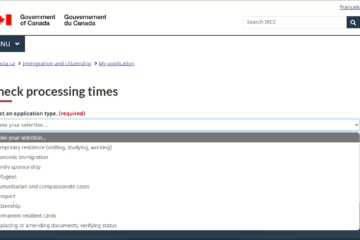Table of contents
Canada is known for its inclusive immigration policies and commitment to human rights. Among its various pathways to permanent residency, the Humanitarian and Compassionate grounds Canada offer a unique and critical avenue for individuals who may not qualify under traditional immigration programs. These provisions are designed to address exceptional cases where applicants face significant hardship or have compelling reasons to remain in Canada. Understanding the intricacies of the Humanitarian and Compassionate grounds Canada process is crucial for those seeking relief from precarious situations and a chance to build a stable life in Canada.
Exploring Humanitarian and Compassionate Grounds
Humanitarian and Compassionate (H&C) grounds are a unique aspect of Canadian immigration policy, offering a lifeline to individuals who find themselves in exceptional, often distressing circumstances. These grounds are designed to assess the personal situation of applicants who may not meet the usual requirements for permanent residency but have compelling reasons to remain in Canada. The focus is on the humanitarian aspects of each case, including the applicant’s establishment in Canada, family ties, and the best interests of any children involved. This pathway emphasizes compassion and understanding, recognizing that immigration laws cannot always anticipate every life situation.
The concept of H&C grounds is rooted in the belief that every individual deserves consideration beyond the rigid frameworks of standard immigration categories. It allows for a more personalized evaluation of cases, taking into account factors like the applicant’s integration into Canadian society, the hardships they might face if forced to leave, and any potential contributions they can make to the country. This approach ensures that Canada remains a place of refuge and opportunity for those who genuinely need it, even if they do not fit neatly into predefined immigration categories.
In practice, the H&C process is a delicate balance between upholding immigration laws and exercising empathy. Decision-makers are tasked with evaluating the merits of each application, considering both the humanitarian elements and the broader implications for Canada’s immigration system. The outcome of a Humanitarian and Compassionate grounds Canada application can significantly impact an individual’s life, offering them the stability and security that comes with permanent residency. This underscores the importance of understanding and effectively navigating this complex area of immigration policy.
Eligibility Criteria for H&C Applications in Canada
Eligibility for H&C applications in Canada is not defined by a strict set of criteria, but rather by the unique circumstances and merits of each case. Generally, applicants must demonstrate that their personal situation warrants special consideration under Humanitarian and Compassionate grounds Canada. This could include factors such as severe hardship if required to leave Canada, significant establishment in the country, or compelling family ties. Importantly, the best interests of any children involved are given substantial weight, reflecting Canada’s commitment to protecting vulnerable populations.
While there is no exhaustive list of qualifying conditions, certain elements can strengthen an H&C application. Evidence of integration into Canadian society, such as employment, community involvement, and language proficiency, can be persuasive. Additionally, applicants may need to demonstrate that they have made genuine efforts to comply with immigration laws and that their circumstances are beyond their control. The process is inherently subjective, with decisions made on a case-by-case basis, highlighting the importance of presenting a comprehensive and well-documented application.
It is crucial for potential applicants to understand that H&C applications are generally considered a last resort. They are intended for individuals who do not qualify for other immigration programs and who face exceptional circumstances. As such, applicants are encouraged to explore all other avenues for permanent residency before pursuing an H&C application. Legal advice and support can be invaluable in navigating this complex process and ensuring that the application accurately reflects the applicant’s situation and needs.
Application Process for H&C Permanent Residency
The application process for H&C permanent residency in Canada is multifaceted and requires careful preparation. Applicants must submit a detailed application package to Immigration, Refugees and Citizenship Canada (IRCC), outlining their reasons for requesting consideration on Humanitarian and Compassionate grounds Canada. This includes providing comprehensive documentation to support their claims, such as evidence of establishment in Canada, proof of hardship, and any relevant personal or family information. Given the subjective nature of Humanitarian and Compassionate grounds Canada assessments, presenting a compelling narrative is critical.
Once the application is submitted, it undergoes a thorough review by immigration officials. The evaluation process can be lengthy, as each case is examined on its own merits. Applicants may be asked to provide additional information or attend an interview to further substantiate their claims. Throughout this process, it is essential for applicants to remain responsive and provide any requested documentation promptly to avoid delays. The outcome of an H&C application can take several months or even years, depending on the complexity of the case and the current backlog of applications.
Applicants should be aware that the success of an H&C application is not guaranteed. The decision ultimately lies with the discretion of immigration officials, who must balance the applicant’s circumstances against the broader objectives of Canada’s immigration system. However, a well-prepared application that clearly articulates the humanitarian and compassionate elements of the case can significantly enhance the chances of a favorable outcome. Legal assistance and support from organizations specializing in immigration law can be invaluable resources throughout this challenging process.
Navigating the path to permanent residency in Canada through Humanitarian and Compassionate grounds can be a daunting journey, but it offers a vital opportunity for those in dire circumstances. By understanding the eligibility criteria and meticulously preparing their applications, individuals can present their cases effectively and increase their chances of success. While the process demands patience and resilience, the possibility of securing a stable future in Canada makes it a worthwhile endeavor. As Canada continues to uphold its values of compassion and inclusivity, the Humanitarian and Compassionate grounds Canada pathway remains an essential component of its immigration landscape, ensuring that those in need have a chance to call Canada home.
Frequently Asked Questions about Humanitarian and Compassionate Grounds in Canada
1. What are Humanitarian and Compassionate (H&C) grounds in Canada?
H&C grounds allow individuals facing exceptional hardship to apply for permanent residency in Canada even if they don’t meet the standard immigration requirements. These grounds focus on personal circumstances and compassionate considerations.
2. Who can apply under H&C grounds?
Individuals who face significant hardship if required to leave Canada, have established themselves in the country, or have compelling family ties in Canada may apply under H&C grounds.
3. What factors are considered in H&C applications?
Factors include the applicant’s integration into Canadian society, family ties, hardships faced if forced to leave, and the best interests of any children involved.
4. Are there specific eligibility criteria for H&C applications?
H&C applications are evaluated on a case-by-case basis, with no strict eligibility criteria. Applicants must demonstrate exceptional circumstances warranting special consideration.
5. Can an H&C application be submitted while in Canada?
Yes, H&C applications can be submitted from within Canada. Applicants need to provide detailed documentation supporting their claims.
6. How long does it take to process an H&C application?
Processing times vary depending on the complexity of the case and the current backlog. It can take several months or even years for a decision.
7. What documents are needed for an H&C application?
Documents include evidence of establishment in Canada, proof of hardship, family ties, community involvement, and any relevant personal or family information.
8. Can an H&C application be used as a first option for permanent residency?
No, H&C applications are considered a last resort and are intended for individuals who do not qualify for other immigration programs.
9. What are the chances of success for an H&C application?
The success of an H&C application depends on how well the case is presented and whether it aligns with Canada’s immigration objectives. Legal assistance can improve the chances of a favorable outcome.
10. Can legal support help with H&C applications?
Yes, consulting with immigration lawyers or specialists can help applicants prepare a strong case and navigate the complex process more effectively.



0 Comments